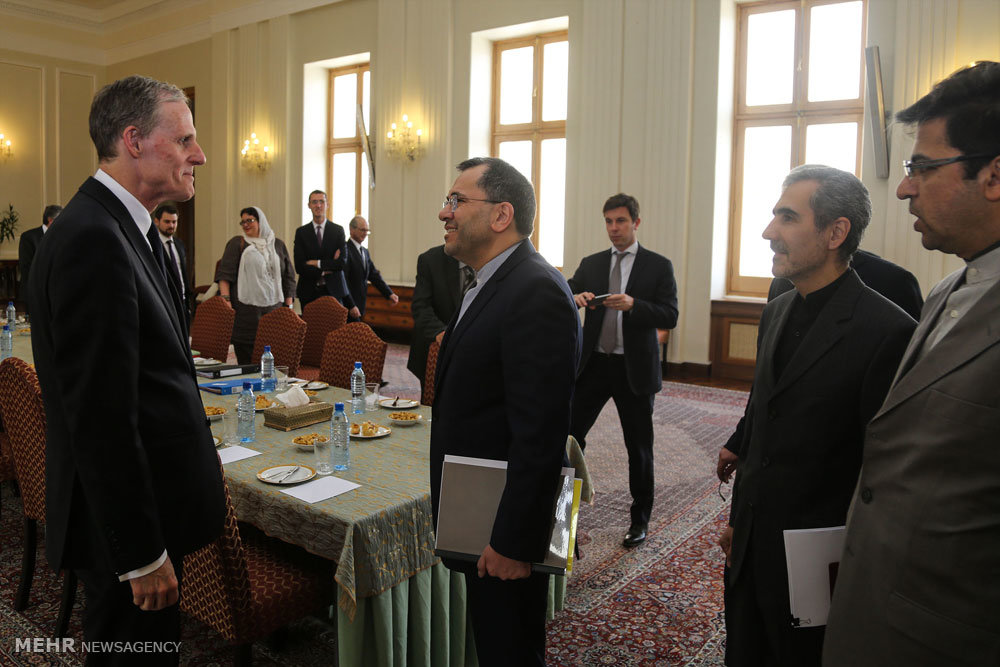State Department, OFAC must stop contradicting each other: Iran
Banking talks progressing but slowly, Takht-Ravanchi says

TEHRAN – Iran says good progress has been made regarding financial and banking interactions, albeit at a sluggish pace.
“As of the implementation of the JCPOA, good progress has been made regarding the removal of Sanctions and banking and financial ties,” Majid Takh-Ravanchi, the deputy foreign minister, told ISNA in an interview published on Wednesday.
Ever since a deal was clinched on the country’s nuclear agenda, Tehran has complained it is not reaping economic gains as calculated, seeing Washington to blame over concerns voiced by international partners.
“Partially, parts of the problems we are facing now are related to primary sanctions by the U.S. which are still in place. This has been a cause of concern for some European financial institutes,” said the diplomat who served as a nuclear negotiator with great powers.
European banks have given Iran the cold shoulder over re-opening channels of communication, fearing falling foul to fines by Washington.
Particularly, Iran has been critical of an ambiguous Washington over the banking row, accusing U.S. officials of sending incongruous messages.
“We think Washington is sending two messages: one by the Department of State clarifying that there is no obstacles to banking and financial interactions with Iran, and the one by the Office of Foreign Assets Control (OFAC) which contradicts the first one,” Takht-Ravanchi remarked.
Takht-Ravanchi says, “In all sessions we have had at ministerial and deputy levels with Americans ever since the implementation day, we have emphasized the point that the messages they are sending are neither a message nor even a positive one.”
As an affiliate of the U.S. Department of the Treasury, OFAC administers and enforces economic and trade sanctions based on the country’s foreign policy and national security goals against targeted foreign countries.
And this dual stance, so to speak, is what Iranian officials have repetitively raised in post-deal meetings with Americans.
In this regard, Takht-Ravanchi said, “In all sessions we have had at ministerial and deputy levels with Americans ever since the implementation day, we have emphasized the point that the messages they are sending are neither a message nor even a positive one.”
Of course the Iranian diplomat sees Iranian banks to blame as well, as they have not kept abreast of the international banking system.
“We were under sanctions for nearly ten years. Not only have our banks been in limited contacts at the international scene, but also international banking regulations have also changed.”
Also, anti-money laundering and counterterrorism measures have been a hurdle “which we have of course ratified relevant bills”, the top diplomat explained.
Having said that, OFAC and the U.S. government together have to find a way to soothe the banking concerns either by issuing a general license or separate licenses in the shortest time, Takht-Ravanchi underscored.
AK/PA
